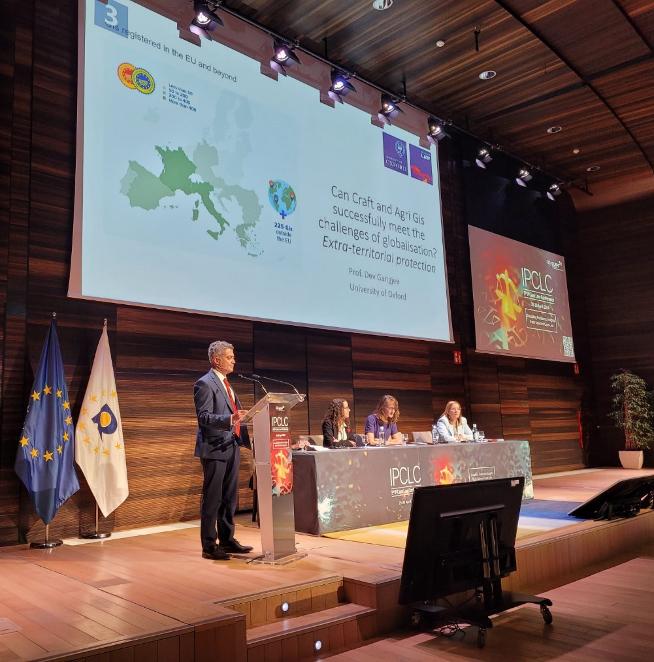Professor Gangjee Presents IP Research to National and International Intellectual Property Offices
Associated people
In April 2024, Professor Dev Gangjee presented his research on different aspects of intellectual property (IP) law internationally, to audiences that include policymakers, practitioners, scholars, and national or regional intellectual property offices.
Dev was invited to present an analysis of the legal issues arising from the international protection of Geographical Indications (GIs) at the European Union Intellectual Property Office’s biennial Case Law Conference in Alicante, Spain. GIs are collective “brands” for food, drink, and craft-related products, such as Champagne, Basmati, and Café de Colombia. Since these products have considerable export potential, setting the parameters for their international protection remains a work in progress.
For the second year in succession, Dev was invited to present the Keynote Address at the Nanhu IP Forum, co-hosted by the Zhongnan University of Economics and Law, China, and held in Changsha, Hunan Province. He presented his current research on “Pantoptic Brand Enforcement? Algorithmic Ascendancy in Online Marketplaces”, which analyses the legal implications of the large-scale adoption of machine learning technologies by online marketplaces such as Amazon and Alibaba, to automatically detect and remove counterfeit products. By way of context, China has the largest e-commerce market in the world, while the EU has recently introduced a new regulatory framework, to make content moderation decisions by platforms more accountable. The Nanhu Forum has emerged as one of China’s oldest and most well-attended IP conferences. This year there were 700 in-person attendees, including officials from the UN World Intellectual Property Organisation (WIPO) and the China National Intellectual Property Administration (CNIPA). Additionally, 800,000 signed up to watch livestreamed proceedings.

During an in-house seminar for the UK Intellectual Property Office, Professor Gangjee presented the findings of an in-depth historical study on the origins of Britain’s first Trade Mark Act of 1875. In many ways, this was the ideal audience for this research since it included several trade mark examiners and others responsible for the operation of the trade mark registry today. Dev’s research situates the origins of British trade mark legislation in its legal and socio-economic context, positioning manufacturers' demands for more secure, registration-based legal protection in the 19th century, within the context of an export-focused, scale-oriented industrial manufacturing economy. The research also unearthed the origins of legal compromises in the 1875 Act, which have never been fully resolved and continue to prove challenging in contemporary legislation.


